 As you all can imagine, if most of your driving is done on smooth highways and roads, your car’s suspension will last a lot longer. But I’m sure you know that most roads and highways are anything but smooth, they’re usually extremely rough, especially with all the road construction that is taking place. As drivers, we are always trying to avoid potholes and other hazards in the road. These conditions can wreak havoc on your car’s suspension.
As you all can imagine, if most of your driving is done on smooth highways and roads, your car’s suspension will last a lot longer. But I’m sure you know that most roads and highways are anything but smooth, they’re usually extremely rough, especially with all the road construction that is taking place. As drivers, we are always trying to avoid potholes and other hazards in the road. These conditions can wreak havoc on your car’s suspension.
After so many years and miles of hazardous driving your vehicle’s suspension system components will wear out, but how long that takes depends on how well you take care of your car’s suspension. In addition to wearing out, a car’s suspension components can be damaged in an accident or by a hard impact like a pothole, hitting a curb or a rock on a bumpy road.
Because the life span of shocks can vary so widely, your vehicle’s manufacturer recommends periodic inspections. During an inspection, your knowledgeable Express Car Care service adviser will check for worn, broken or missing parts.
Signs for drivers that shocks or struts are wearing out: the vehicle’s tires may have a cupped wear pattern. This is from the shocks bouncing unevenly. Drivers may notice a floating or drifting sensation when cornering. If the front of your car dives excessively when stopping or rocks back and forth after you stop, your shocks may be worn out. And if they are leaking fluid, it’s definitely time to replace them.
If you are experiencing any of these symptoms, come see us at Express Car Care in Denver for a suspension inspection, also if you’ve been in an accident that involved one of your vehicle’s wheels. Worn or broken shocks can cause premature wear or failure on other suspension parts such as ball joints and other steering components as well. If your car’s suspension actually fails, it could lead to a serious accident, so let Express Car Care take care of your car’s suspension.
When drivers replace their vehicle shocks, it’s usually best to replace all four at the same time. That provides more even handling. Be sure to consult with your service adviser because you don’t want a big difference between the performance of your shocks from wheel to wheel, and replacing all of them may be the safest bet.

 Question: What are the signs that I need a brake job?
Question: What are the signs that I need a brake job?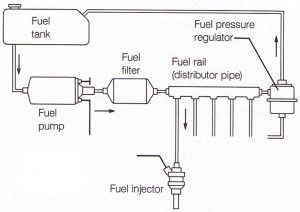 I’d like to give our friends in Denver a quick overview of the fuel system. It starts with the fuel pump. The fuel pump is located inside the tank and pumps the fuel out to the engine. Somewhere along the way is a fuel filter, it has the job of filtering out dirt before it gets to the engine.
I’d like to give our friends in Denver a quick overview of the fuel system. It starts with the fuel pump. The fuel pump is located inside the tank and pumps the fuel out to the engine. Somewhere along the way is a fuel filter, it has the job of filtering out dirt before it gets to the engine.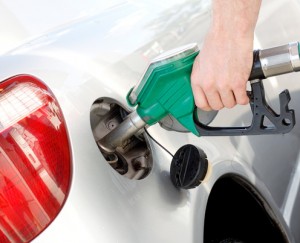 A lot of gas is wasted by Denver vehicles with dirty fuel delivery systems. Let’s start at the tank. The gas tank gathers tiny amounts of dirt, rust and sediment over the years of driving around. That’s why there’s a fuel filter to clean the fuel after it leaves the tank. A dirty filter will rob the engine of the clean gas it needs to run efficiently.
A lot of gas is wasted by Denver vehicles with dirty fuel delivery systems. Let’s start at the tank. The gas tank gathers tiny amounts of dirt, rust and sediment over the years of driving around. That’s why there’s a fuel filter to clean the fuel after it leaves the tank. A dirty filter will rob the engine of the clean gas it needs to run efficiently.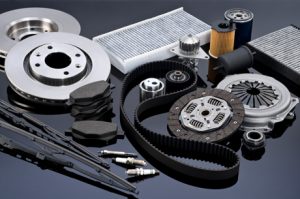 Let me tell you about an experience that took place at a well-established Italian restaurant that had changed hands a few months ago. The previous owners were an Italian couple that used old family recipes and fresh ingredients to make their pasta and sauces from scratch. They enjoyed stellar reviews for decades.
Let me tell you about an experience that took place at a well-established Italian restaurant that had changed hands a few months ago. The previous owners were an Italian couple that used old family recipes and fresh ingredients to make their pasta and sauces from scratch. They enjoyed stellar reviews for decades.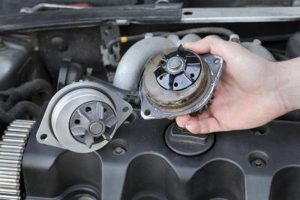 Let’s talk water pumps for vehicles here in Denver. The engine in your vehicle is cooled by coolant/antifreeze mixed with water. This mixture circulates around the engine, absorbing some of the heat. The coolant then flows through the radiator where air cools it down for the return trip back through the engine. Your vehicle’s water pump is what drives this process.
Let’s talk water pumps for vehicles here in Denver. The engine in your vehicle is cooled by coolant/antifreeze mixed with water. This mixture circulates around the engine, absorbing some of the heat. The coolant then flows through the radiator where air cools it down for the return trip back through the engine. Your vehicle’s water pump is what drives this process. Denver drivers ought to be concerned about wheel alignments for two primary reasons: safety and money. When your wheels are out of alignment, they can pull to one side, sometimes severely. One moment of inattention could put you into on-coming traffic, a curb, or off the road. And an improper alignment will chew up your tires very quickly when you’re driving on freeways and surface streets.
Denver drivers ought to be concerned about wheel alignments for two primary reasons: safety and money. When your wheels are out of alignment, they can pull to one side, sometimes severely. One moment of inattention could put you into on-coming traffic, a curb, or off the road. And an improper alignment will chew up your tires very quickly when you’re driving on freeways and surface streets. Many of our customers would like to know how they can improve their fuel economy. At Express Car Care, we help drivers keep their vehicles running in prime condition which makes them more efficient fuel-wise. When your car works the way it was designed to work, it will use less fuel and you save money.
Many of our customers would like to know how they can improve their fuel economy. At Express Car Care, we help drivers keep their vehicles running in prime condition which makes them more efficient fuel-wise. When your car works the way it was designed to work, it will use less fuel and you save money.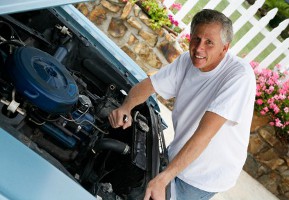 Here are 5 tips on buying a used car for anyone who’s in the market:
Here are 5 tips on buying a used car for anyone who’s in the market: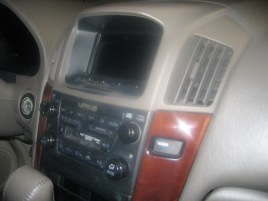 You may have wondered where the warm air in your passenger compartment comes from. Well, as your engine starts to warm up, it also warms the coolant/antifreeze that circulates around the engine and through the radiator. There is also a hose that carries coolant/antifreeze from the engine to the heater core and another one that takes it back into the engine. The heater core looks like a little radiator and lives in the air blend box behind the dashboard.
You may have wondered where the warm air in your passenger compartment comes from. Well, as your engine starts to warm up, it also warms the coolant/antifreeze that circulates around the engine and through the radiator. There is also a hose that carries coolant/antifreeze from the engine to the heater core and another one that takes it back into the engine. The heater core looks like a little radiator and lives in the air blend box behind the dashboard.